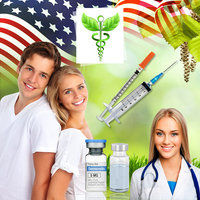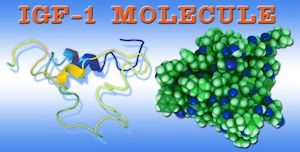Introduction
Late-onset hypogonadism (LOH), also known as age-related low testosterone, is a clinical and biochemical syndrome associated with advancing age in men. It is characterized by a deficiency in serum testosterone levels and the presence of symptoms such as reduced libido, erectile dysfunction, decreased muscle mass, increased fat mass, and mood disturbances. The prevalence of LOH is increasing among American males, prompting research into potential modifiable risk factors, including dietary patterns. This article delves into the relationship between nutrition and LOH, offering insights into how dietary interventions might mitigate its impact.
The Role of Diet in Hormonal Health
Diet plays a crucial role in maintaining overall health, including hormonal balance. Essential nutrients such as vitamins, minerals, and macronutrients influence testosterone production and metabolism. For instance, zinc and vitamin D are known to be vital for testosterone synthesis. Diets rich in these nutrients, typically found in seafood, nuts, and fortified foods, may support optimal testosterone levels. Conversely, diets high in processed foods and sugars have been linked to obesity, a known risk factor for LOH.
Analyzing Dietary Patterns Among American Males
American dietary patterns have shifted over the decades, with an increased consumption of processed and fast foods. This shift correlates with rising obesity rates, which in turn are associated with lower testosterone levels. Studies indicate that American men who consume diets high in trans fats and sugars are at a higher risk of developing LOH. In contrast, diets that emphasize whole grains, lean proteins, and healthy fats are linked to better hormonal health.
Nutritional Deficiencies and LOH
Specific nutritional deficiencies have been identified as potential contributors to LOH. For example, a deficiency in vitamin D, common among American males, has been associated with lower testosterone levels. Similarly, inadequate intake of omega-3 fatty acids, found in fish and flaxseeds, may impair testosterone production. Addressing these deficiencies through dietary changes or supplementation could be a strategic approach to managing LOH.
Potential Dietary Interventions
Dietary interventions aimed at preventing or mitigating LOH should focus on nutrient-dense foods that support testosterone production. A diet rich in fruits, vegetables, whole grains, lean proteins, and healthy fats can provide the necessary nutrients to support hormonal health. Additionally, limiting processed foods, sugars, and trans fats is crucial. Some research suggests that adopting a Mediterranean-style diet, which emphasizes these healthy food choices, may benefit testosterone levels and overall health.
The Impact of Lifestyle Factors
While diet is a significant factor, other lifestyle elements such as physical activity, sleep, and stress management also play roles in LOH. Regular exercise, particularly resistance training, has been shown to boost testosterone levels. Adequate sleep and stress reduction techniques can also support hormonal balance. A holistic approach that combines dietary adjustments with lifestyle modifications may offer the best strategy for managing LOH.
Conclusion
Late-onset hypogonadism is a growing concern among American males, influenced by dietary patterns and nutritional deficiencies. By understanding the link between diet and LOH, men can make informed choices to support their hormonal health. Emphasizing nutrient-rich foods and limiting processed and sugary items can be a practical step toward preventing or managing LOH. As research continues to uncover the intricate relationships between nutrition and hormonal health, dietary interventions hold promise as a key component of a comprehensive approach to men's health.
In summary, American males can benefit from a diet that supports testosterone production and overall well-being, potentially reducing the risk and impact of late-onset hypogonadism.
Contact Us For A Fast And Professional Response

- Exploring Alternative Therapies for Late-Onset Hypogonadism in American Males [Last Updated On: February 20th, 2025] [Originally Added On: February 20th, 2025]
- Economic Impact of Late-Onset Hypogonadism on American Men's Healthcare [Last Updated On: March 16th, 2025] [Originally Added On: March 16th, 2025]
- Nutrition's Role in Managing Late-Onset Hypogonadism in American Males [Last Updated On: March 17th, 2025] [Originally Added On: March 17th, 2025]
- Managing Late-Onset Hypogonadism: Symptoms, Diagnosis, and Treatment for American Men [Last Updated On: March 18th, 2025] [Originally Added On: March 18th, 2025]
- Late-Onset Hypogonadism: Symptoms, Diagnosis, and Treatment in American Males [Last Updated On: March 19th, 2025] [Originally Added On: March 19th, 2025]
- Genetic Predisposition and Ethnic Impact on Late-Onset Hypogonadism in American Males [Last Updated On: March 19th, 2025] [Originally Added On: March 19th, 2025]
- Late-Onset Hypogonadism: Effects on Male Fertility and Management Strategies [Last Updated On: March 20th, 2025] [Originally Added On: March 20th, 2025]
- Understanding Late-Onset Hypogonadism: Symptoms, Detection, and Management in American Males [Last Updated On: March 20th, 2025] [Originally Added On: March 20th, 2025]
- Late-Onset Hypogonadism: Impact on Muscle Mass in American Men and Management Strategies [Last Updated On: March 20th, 2025] [Originally Added On: March 20th, 2025]
- Managing Late-Onset Hypogonadism: Detection, Lifestyle, and Hormone Therapy in American Men [Last Updated On: March 20th, 2025] [Originally Added On: March 20th, 2025]
- Late-Onset Hypogonadism: Effects on Mood, Energy, and Quality of Life in American Men [Last Updated On: March 20th, 2025] [Originally Added On: March 20th, 2025]
- Advancements in Late-Onset Hypogonadism Treatment: Emerging Therapies and Personalized Medicine [Last Updated On: March 21st, 2025] [Originally Added On: March 21st, 2025]
- Late-Onset Hypogonadism: Symptoms, Diagnosis, and Management Strategies for American Men [Last Updated On: March 21st, 2025] [Originally Added On: March 21st, 2025]
- Exercise Strategies to Combat Late-Onset Hypogonadism in Aging American Males [Last Updated On: March 21st, 2025] [Originally Added On: March 21st, 2025]
- Late-Onset Hypogonadism: Symptoms, Long-Term Effects, and Management in American Men [Last Updated On: March 23rd, 2025] [Originally Added On: March 23rd, 2025]
- Hormone Replacement Therapy for Late-Onset Hypogonadism: Benefits, Risks, and Future Directions [Last Updated On: March 23rd, 2025] [Originally Added On: March 23rd, 2025]
- Exploring the Link Between Late-Onset Hypogonadism and Diabetes in American Males [Last Updated On: March 23rd, 2025] [Originally Added On: March 23rd, 2025]
- Late-Onset Hypogonadism: Understanding TRT, Side Effects, and Alternative Treatments [Last Updated On: March 23rd, 2025] [Originally Added On: March 23rd, 2025]
- Late-Onset Hypogonadism: Symptoms, Monitoring, and Management in American Males [Last Updated On: March 24th, 2025] [Originally Added On: March 24th, 2025]
- Late-Onset Hypogonadism: Impacts on American Men's Relationships and Treatment Options [Last Updated On: March 24th, 2025] [Originally Added On: March 24th, 2025]
- Late-Onset Hypogonadism: Impacts on Cognitive Function and Management Strategies [Last Updated On: March 24th, 2025] [Originally Added On: March 24th, 2025]
- Early Intervention Benefits for Late-Onset Hypogonadism in American Men [Last Updated On: March 24th, 2025] [Originally Added On: March 24th, 2025]
- Late-Onset Hypogonadism in American Males: Symptoms, Diagnosis, and Management Strategies [Last Updated On: March 25th, 2025] [Originally Added On: March 25th, 2025]
- Managing Late-Onset Hypogonadism: Holistic Approaches and Treatment Strategies [Last Updated On: March 25th, 2025] [Originally Added On: March 25th, 2025]
- Understanding Late-Onset Hypogonadism: Diagnosis and Management for American Males [Last Updated On: March 25th, 2025] [Originally Added On: March 25th, 2025]
- Late-Onset Hypogonadism in American Men: Symptoms, Diagnosis, and Management Strategies [Last Updated On: March 25th, 2025] [Originally Added On: March 25th, 2025]
- Late-Onset Hypogonadism in American Men: Symptoms, Diagnosis, and Management Strategies [Last Updated On: March 25th, 2025] [Originally Added On: March 25th, 2025]
- Managing Late-Onset Hypogonadism: Diet and Nutrition Strategies for American Men [Last Updated On: March 25th, 2025] [Originally Added On: March 25th, 2025]
- Late-Onset Hypogonadism: Understanding, Stigma, and Treatment in American Males [Last Updated On: March 25th, 2025] [Originally Added On: March 25th, 2025]
- Late-Onset Hypogonadism: Impact on Sexual Health and Management Strategies for American Men [Last Updated On: March 25th, 2025] [Originally Added On: March 25th, 2025]
- Emotional Journey of American Men with Late-Onset Hypogonadism: Challenges and Support [Last Updated On: March 25th, 2025] [Originally Added On: March 25th, 2025]
- Late-Onset Hypogonadism: Impact on Sleep and Management Strategies for American Men [Last Updated On: March 25th, 2025] [Originally Added On: March 25th, 2025]
- Managing Late-Onset Hypogonadism: Symptoms, Diagnosis, and Treatment in Aging Men [Last Updated On: March 26th, 2025] [Originally Added On: March 26th, 2025]
- Late-Onset Hypogonadism in Aging American Males: Symptoms, Diagnosis, and Multidisciplinary Management [Last Updated On: March 26th, 2025] [Originally Added On: March 26th, 2025]
- Dispelling Myths: Understanding and Managing Late-Onset Hypogonadism in American Men [Last Updated On: March 26th, 2025] [Originally Added On: March 26th, 2025]
- Understanding and Managing Late-Onset Hypogonadism in American Men: Symptoms, Diagnosis, and Treatment [Last Updated On: March 26th, 2025] [Originally Added On: March 26th, 2025]
- Community Support Enhances Life Quality for Men with Late-Onset Hypogonadism [Last Updated On: March 26th, 2025] [Originally Added On: March 26th, 2025]
- Untreated Late-Onset Hypogonadism: Health Risks and Importance of Early Intervention in US Men [Last Updated On: March 27th, 2025] [Originally Added On: March 27th, 2025]
- Financial Burden of Late-Onset Hypogonadism in American Men: Costs and Management [Last Updated On: March 27th, 2025] [Originally Added On: March 27th, 2025]
- Advanced Technologies Revolutionizing Late-Onset Hypogonadism Diagnosis in American Males [Last Updated On: March 27th, 2025] [Originally Added On: March 27th, 2025]
- Understanding Late-Onset Hypogonadism: Diagnosis and Management for American Men [Last Updated On: March 27th, 2025] [Originally Added On: March 27th, 2025]
- Cultural Perceptions and Management of Late-Onset Hypogonadism in American Men [Last Updated On: March 27th, 2025] [Originally Added On: March 27th, 2025]
- Understanding and Managing Late-Onset Hypogonadism in American Men: Symptoms, Diagnosis, and Treatment [Last Updated On: March 27th, 2025] [Originally Added On: March 27th, 2025]
- Late-Onset Hypogonadism: Impacts on American Men's Careers and Cognitive Function [Last Updated On: March 28th, 2025] [Originally Added On: March 28th, 2025]
- Managing Late-Onset Hypogonadism: Preserving Independence in American Men [Last Updated On: March 28th, 2025] [Originally Added On: March 28th, 2025]
- Advocating for Better Late-Onset Hypogonadism Care: A Guide for American Men [Last Updated On: March 28th, 2025] [Originally Added On: March 28th, 2025]
- Stress Exacerbates Late-Onset Hypogonadism in American Males: A Holistic Approach [Last Updated On: March 28th, 2025] [Originally Added On: March 28th, 2025]
- Legal Rights and Workplace Accommodations for American Men with Late-Onset Hypogonadism [Last Updated On: March 28th, 2025] [Originally Added On: March 28th, 2025]
- Managing Late-Onset Hypogonadism: Symptoms, Diagnosis, and Treatment for American Men [Last Updated On: March 28th, 2025] [Originally Added On: March 28th, 2025]
- Late-Onset Hypogonadism: Diagnosis, Treatment, and Management Strategies for American Men [Last Updated On: March 29th, 2025] [Originally Added On: March 29th, 2025]
- Holistic Management of Late-Onset Hypogonadism: Integrating Mental Health Support [Last Updated On: March 30th, 2025] [Originally Added On: March 30th, 2025]
- Late-Onset Hypogonadism: Family Support and Management Strategies for American Males [Last Updated On: March 30th, 2025] [Originally Added On: March 30th, 2025]
- Navigating Insurance Coverage for Late-Onset Hypogonadism in American Men [Last Updated On: April 1st, 2025] [Originally Added On: April 1st, 2025]
- Managing Late-Onset Hypogonadism: Lifestyle Strategies for American Men [Last Updated On: April 2nd, 2025] [Originally Added On: April 2nd, 2025]
- Late-Onset Hypogonadism: Peer Support's Role in Enhancing Men's Health and Well-being [Last Updated On: April 5th, 2025] [Originally Added On: April 5th, 2025]
- Late-Onset Hypogonadism in American Males: Symptoms, Treatment, and Lifestyle Management [Last Updated On: April 5th, 2025] [Originally Added On: April 5th, 2025]
- Late-Onset Hypogonadism: Impact on Self-Esteem and Treatment Options for American Men [Last Updated On: April 5th, 2025] [Originally Added On: April 5th, 2025]
- Managing Late-Onset Hypogonadism: Stress Reduction Strategies for American Men [Last Updated On: April 6th, 2025] [Originally Added On: April 6th, 2025]
- Late-Onset Hypogonadism: Social Impacts and Management Strategies for American Men [Last Updated On: April 7th, 2025] [Originally Added On: April 7th, 2025]
- Late-Onset Hypogonadism in American Men: Advocacy and Management Strategies [Last Updated On: April 8th, 2025] [Originally Added On: April 8th, 2025]
- Research Advances in Late-Onset Hypogonadism: Diagnosis, Treatment, and Safety in the US [Last Updated On: April 9th, 2025] [Originally Added On: April 9th, 2025]
- Nutritionists' Role in Managing Late-Onset Hypogonadism Through Diet and Key Nutrients [Last Updated On: April 9th, 2025] [Originally Added On: April 9th, 2025]
- Managing Late-Onset Hypogonadism: Symptoms, Screening, and Treatment for American Men [Last Updated On: April 9th, 2025] [Originally Added On: April 9th, 2025]
- Late-Onset Hypogonadism: Symptoms, Diagnosis, and Treatment in American Males [Last Updated On: April 10th, 2025] [Originally Added On: April 10th, 2025]
- Exercise as a Key Strategy for Managing Late-Onset Hypogonadism in American Men [Last Updated On: April 10th, 2025] [Originally Added On: April 10th, 2025]
- Managing Late-Onset Hypogonadism: Strategies for American Men's Mental Health [Last Updated On: April 11th, 2025] [Originally Added On: April 11th, 2025]
- Late-Onset Hypogonadism: Emotional Impacts and Management Strategies for American Men [Last Updated On: April 13th, 2025] [Originally Added On: April 13th, 2025]
- Endocrinologists' Vital Role in Managing Late-Onset Hypogonadism in American Men [Last Updated On: April 14th, 2025] [Originally Added On: April 14th, 2025]
- Managing Late-Onset Hypogonadism: A Guide for American Men's Healthcare Navigation [Last Updated On: April 14th, 2025] [Originally Added On: April 14th, 2025]
- Late-Onset Hypogonadism: Understanding, Diagnosing, and Treating Age-Related Testosterone Decline [Last Updated On: April 15th, 2025] [Originally Added On: April 15th, 2025]
- Understanding and Managing Late-Onset Hypogonadism in Aging American Men [Last Updated On: April 16th, 2025] [Originally Added On: April 16th, 2025]
- Late-Onset Hypogonadism: Symptoms, Diagnosis, and Comprehensive Management Strategies [Last Updated On: April 17th, 2025] [Originally Added On: April 17th, 2025]
- Navigating Late-Onset Hypogonadism: Community Resources and Support for American Men [Last Updated On: April 17th, 2025] [Originally Added On: April 17th, 2025]
- Therapists' Crucial Role in Managing Late-Onset Hypogonadism in American Males [Last Updated On: April 18th, 2025] [Originally Added On: April 18th, 2025]
- Holistic Management of Late-Onset Hypogonadism in American Men: Diet, Exercise, and More [Last Updated On: April 18th, 2025] [Originally Added On: April 18th, 2025]
- Managing Late-Onset Hypogonadism: Symptoms, Diagnosis, and Treatment Options for American Men [Last Updated On: April 19th, 2025] [Originally Added On: April 19th, 2025]
- Late-Onset Hypogonadism: Impact on American Men's Professional Performance and Management Strategies [Last Updated On: April 19th, 2025] [Originally Added On: April 19th, 2025]
- Managing Late-Onset Hypogonadism: Lifestyle Strategies for American Men's Health [Last Updated On: April 20th, 2025] [Originally Added On: April 20th, 2025]
- Understanding Late-Onset Hypogonadism: Symptoms, Diagnosis, and Management in Aging Men [Last Updated On: April 20th, 2025] [Originally Added On: April 20th, 2025]
- Understanding Late-Onset Hypogonadism: Symptoms, Causes, and Treatment in Aging Men [Last Updated On: April 21st, 2025] [Originally Added On: April 21st, 2025]

















